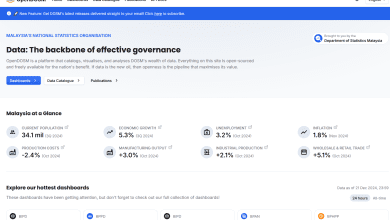

By Joachim Ng
The bank where you leave your funds in a current or savings account may be less watchful against crime than you think. A recent international journalism investigation has made the shocking discovery that massive sums of dirty money have flowed for years through some of the world’s largest banking institutions.
Nine banks in Malaysia have been named in the investigation conducted by the International Consortium of Investigative Journalists (ICIJ) which has 108 international media outlets from 88 different countries participating.
You probably have your money in one or more of these banks. In wake of the disclosure, banks have pledged all-out efforts to combat financial crime. But will there be some real action to back up the PR talk?
In the local context, among the suspicious transactions that all banks should instantly freeze are the voluminous flow of hard-earned savings ripped off the trusting old folks by clever-talking frauds. Ipoh is reputed to be a golden city for retirees and hence a goldmine for scammers targeting vulnerable oldies.
Other than corruption and drug trafficking, the largest growing source of theft using banking facilities is the so-called Macao Scam that the police should more correctly name the Jail Scam. In the most recent highlighted scam, a future grandma lost RM200,000 when a fake Sergeant Yap called to inform her that the commercial crime department was investigating a credit card matter involving her.
It is part of the drill for scammers to threaten victims with jail terms unless they strictly follow all instructions given to them over the phone. Furthermore, scammers caution grandma that a syndicate will harm the grandchildren if she tells anybody. Grandma thinks: It’s better to lose all my money than to lose my grandchildren and die in jail. From then on, she tiptoes out—only to send money to half a dozen bank accounts through the ATM.
“Banks need to do a better job of shutting down these accounts once they see repeated reasons for filing suspicious activity reports,” the Washington-based Global Financial Integrity admonishes.
The police are regularly advising the public to be suspicious of calls from strangers. But the police obviously know statistics as that is a subject they learn in training school. Every salesman is confident that if he talks to 100 prospects, he is statistically guaranteed five sales.
The jail scam industry targets one million prospects a year. So they may get up to 50,000 victims every year. They need only a 5% positive response rate to amass a gigantic fortune. The 95 out of 100—these are the younger folks who instantly see through the scam—don’t matter. But elderly trust the police, and that’s why scammers pose as police personnel.
Each victim loses at least RM50,000 with highs of RM5 million being reached. We are talking about RM2 billion flowing out of the country this way every year, because the scammers don’t spend the money locally as that will leave behind a money trail.
Banks can stop all these fraudulent transactions by engaging Artificial Intelligence detectives that come as cheap as a Proton car. They won’t spend the money because so far only the Deputy Home Minister and one senator have expressed concern over the growing threat to lives and the economy posed by these scammers.
The public hasn’t shown much concern as well. That may be an indication of how ignorant we are towards the invisible dangers our grandparents or other old folks might face. Pressure your MP to call for action from the Finance Ministry. Each time a scam is reported, the bank involved should be admonished with a warning or penalty for allowing its ATM to be used to facilitate such thievery of elderly funds.
A simple step that all banks can take is to place an AI guard to oversee all accounts that are owned by people above the age of 65. Any substantial transfer from an aged person to a stranger’s account via ATM is suspicious. A flurry of small transfers within a month is also suspicious. An AI detective can easily tell if a scam is in progress. The police can then be alerted to make an instant arrest.
The law should also be revised to classify scamming as an act of terrorism, with lifelong imprisonment for the fake sergeants. Scamming isn’t just a theft; by posing as law-enforcement officials, scammers undermine confidence in the police force and other regulatory agencies.


